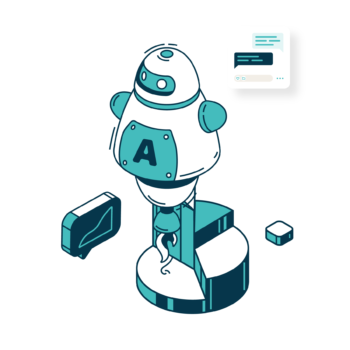By now, you’ve probably heard about the AI platform that promises to be a “game-changer” in the media and technology industries. ChatGPT is making rounds across various social media platforms, news channels and even scientific journals.
Here, we tell you a little bit about what ChatGPT is, how it works and what it means for the future of content creation.
What is ChatGPT?
This cutting-edge technology uses advanced algorithms and machine learning to automate tasks and offer insights in ways that were previously impossible. The impact of this AI platform is far-reaching, potentially revolutionizing industries and transforming the way we live and work.
The paragraph above was written by ChatGPT itself… neat, right?
How does ChatGPT affect SEO?
Google values fresh content that benefits users, demonstrated by its August 2022 update to its Search feature. The update prioritizes a “people-first” initiative designed to decentralise information created to “break through” the algorithm, and instead focus on providing helpful, authentic information to its users.
This may appear to be in conflict with AI-generated content, but there’s no reason why these instruments cannot become a part of your content creation process. AI-generated content provides a wider range of information to work with. From conducting industry research to creating images that fit your specific requirements, AI platforms can assist you without compromising the authenticity and integrity of your content.
Creating SEO content has never been simpler thanks to the influx of new tools that have been released in just the first month of 2023. The process of creating content has been amplified by tools like ChatGPT and Quillbot, which can be used for research, copywriting, and text optimization in a matter of minutes.
Do AI content generators like ChatGPT threaten the future of human artists and copywriters?
Recent years have seen significant advancements in artificial intelligence (AI) technology, with ChatGPT and other AI content producers constantly influencing our expectations for the future. These systems can generate high-quality content, such as articles and advertisements in a matter of seconds, prompting many to question whether they are a threat to the future of human artists and copywriters.
AI content generators have the capability to produce large quantities of effective and engaging content in a short amount of time, such as generating hundreds of pieces in just a few hours. This can be beneficial for content creators as it allows them to efficiently produce a large volume of content, freeing up time to focus on more creative and demanding tasks.
However, despite having access to a sizable database of information, AI content generators are unable to create content that specifically targets emotively persuasive or empathic triggers. Because of this, artificial intelligence (AI)-generated content is still a long way from completely replacing human creators; even the most commercial copy requires emotional connections.
Human artists and copywriters still have a critical role to play in creating truly original and engaging content that connects with audiences on an emotional level.
Subscribe to our newsletter and be sure to read our blog post next week to learn the next steps to successfully introducing AI into your content production strategy!

Streamline Content Production with AI-Driven Tools
Highlight Your Property’s Features and Captivate Your Audience with AI.







